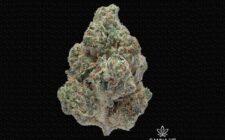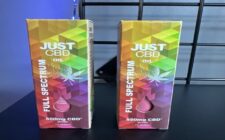The cannabis plant, with its well-known leaves and flower, has a rich history as a solution stretching back hundreds of years. It’s from this plant that Cannabidiol (CBD), a naturally compound, is obtained.
CBD has recently come into the leading edge of both medical research study and widespread home usage. The healing and medicinal buildings of CBD are being evaluated and confirmed by researchers and physicians around the world. Lauded as a risk-free and non-addictive material, CBD is among more than a hundred “phytocannabinoids,” which are one-of-a-kind to this plant and are accountable for its countless pharmacological uses.
The phytocannabinoids in CBD are responsible for its effects on the human body, but what does that suggest?
Let’s know about another medicinally energetic phytocannabinoid that’s discovered in cannabis: tetrahydrocannabinol (THC). This is the compound that creates the “high” that cannabis is popular for and the chemical that makes marijuana prohibited.
Both CBD and THC have been examined thoroughly, and both have unique restorative features. Unlike THC nonetheless, CBD does not create intoxication. That’s because CBD and THC affect the brain and body in completely different ways.
The fact that CBD is non-intoxicating, non-addictive, and very easy to take as CBD oil, makes it an attractive choice for those who fear about trying cannabis for the very first time.
PROSPECTIVE USES OF CBD
Comprehensive scientific research and mounting unscientific accounts from clients and medical professionals highlight CBD’s prospective as a therapy for several ailments. The checklist of feasible medical usages for CBD is huge.
CBD for Seizures
CBD is often discussed as a feasible treatment for epilepsy. As a matter of fact, the life-altering efficiency of CBD in combating seizures in kids with certain types of epilepsy may have been responsible for much of its early appeal.
CBD for Pain alleviation
Researches have revealed that the effects of CBD oil on the brain’s receptors may help manage pain, and research studies in pets have shown that CBD minimizes discomfort and inflammation.
The future appears encouraging, as preliminary study informs us that CBD reduces the capacity of some kinds of tumor cells to replicate. CBD has verified neuroprotective results and a 2010 brain cancer research located that CBD boosts the inhibitory impacts of THC on human glioblastoma cell expansion and survival. If absolutely nothing else, we understand that CBD improves the cancer-fighting properties of THC.
Thanks for reading this article. Hope you find it useful. If you want to know more CBD benefits and side effects, visit Earthagenic CBD where you will get the right education about CBD products. We aim not only to sell CBD products but also aware people of them. Visit now for more information.










